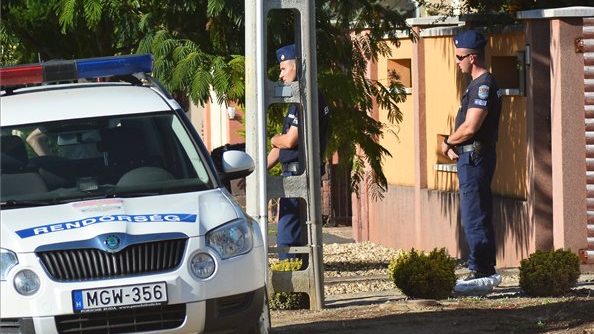The judgment panel agreed with the motion for aggravation of the Appellate Chief Prosecution Office of Debrecen in the case of the Romanian doctor who shot his ex-lover and her husband in revenge.
The Romanian defendant, who previously worked as a doctor in Hungary, met the victim in 2012, with whom he developed a close emotional relationship. They planned a future together, so the woman decided to dissolve her marriage with her husband. However, after initiating the divorce, she changed her mind and decided that she wanted to live with her husband and raise their children together.
The accused could not accept this and constantly searched, harassed, terrorized and threatened the woman – in person, by phone, e-mail, even at her workplace – and because of this, she already had a lawyer draft a report.
Two years after the breakup, due to continuous rejection, the accused decided to kill the woman and her husband as revenge for his grievances, so in the summer of 2016, he bought a revolver pistol and 12 cartridges at the local market. In order to carry out his plan, on August 31, 2016 – in the early afternoon hours – he parked his car a little away from the victim’s house and drove from there to the family house of his ex-lover with his bicycle and a loaded firearm.
When the woman got home, the accused sneaked into the front door of the house through the still-open gate. Noticing this, the victim shouted for help to her husband and ran into the house. The defendant followed her, then pulled out his gun in the foreground and shot the injured woman and her husband, who appeared to ask for help, in the head with one shot each. After that, the defendant went back to his car on his bicycle, then fled on side roads to Romania, where he was arrested the next day on the basis of a European arrest warrant.
As a result of the shot, the wife suffered such a serious injury that she died on the spot. Her husband survived, but his injury resulted in permanent disability and severe health deterioration. At the time of the crime, the victim’s two minor children were at home, so they were directly involved in the events.
In the criminal case initiated for the premeditated, nefarious motive of the attempted murder of several people, the prosecutor appealed against the verdict against the accused, in order to classify his act as having been committed for a nefarious motive, and to determine the earliest date of his parole for a longer period.
The accused filed a legal remedy for annulment and mitigation, while his lawyer appealed for a lighter classification, the omission of premeditation as a qualifying circumstance, and for the mitigation of the sentence, as well as for the annulment of the first-instance verdict due to a procedural violation.
The Jury in Debrecen changed the verdict on Tuesday, after taking evidence regarding the defendant’s state of mind and capacity to account, and, in accordance with the prosecutor’s position, also established the crime for a nefarious reason as a qualifying circumstance. The court pointed out that two years after the final break-up and in view of the restoration of conjugal life between the victims, as well as the constant rejection by the victim, jealousy cannot be invoked, the motive of the defendant’s actions was the deeply socially reprehensible cause, revenge and retaliation for the rejection.
The second-instance court increased the earliest date of parole to 30 years, and in accordance with the motion of the General Prosecutor’s Office of Appeal, instead of final deportation, in view of the legal requirement, it reduced the period to 10 years. In other respects, he upheld the first-instance verdict.
The verdict is final – informed the Debrecen Appeals General Prosecutor’s Office.
(Debreceni Nap)


















